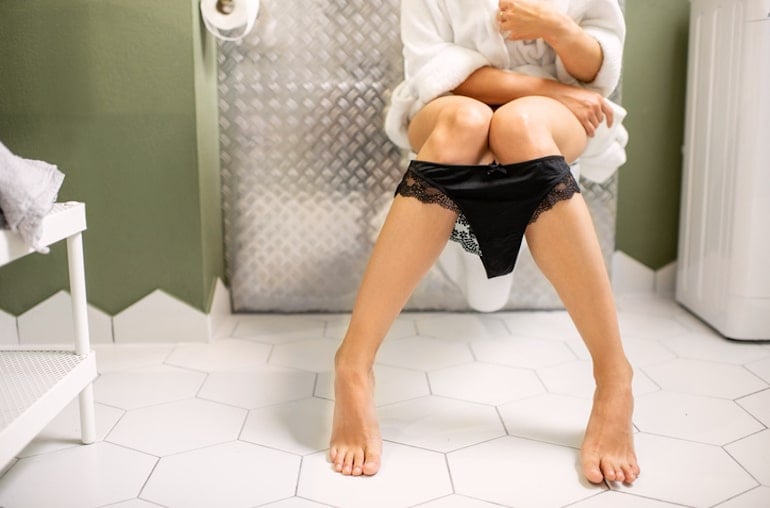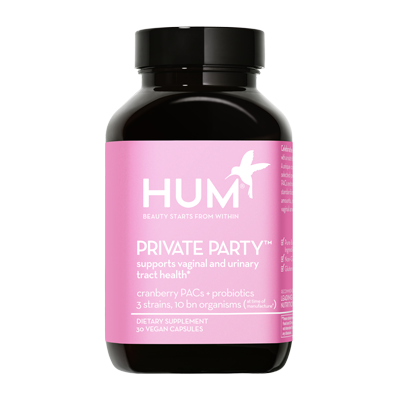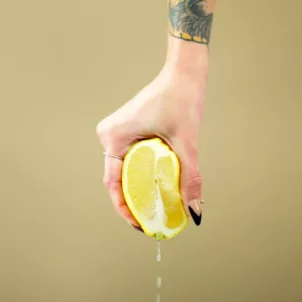Chelsey Amer, MS, RDN, CDN, shares seven surprising reasons why your pee may smell bad.
So you’re on the toilet and notice a funky odor to your pee. The first thing that comes to mind might be: Did I eat asparagus? Yet as pungent as “asparagus pee” can be, eating this veggie regularly isn’t the only reason why your pee smells strong.
Keep reading to discover the primary causes of strong smells in urine.
What does urine contain?
Urine is a waste product made by your kidneys. You can think of your kidneys as a fine mesh strainer that filters your blood and collects metabolites that your body doesn’t need.
Over 95 percent of urine is water. From there, its waste products include but aren’t limited to:
- urea
- sodium
- potassium
- creatinine
If these waste metabolites were to build up in your body, they could potentially cause complications with other organs. But luckily, they’re excreted through your urine.

Why does my pee smell bad?
Depending on your level of hydration, “normal” urine is somewhere on the yellow spectrum and it doesn’t have a strong scent. However, there are some instances that may have you wonder why your pee smells.
Usually, scented urine is pretty harmless; it originates from various compounds created during the filtration process. It’s a good idea to be aware of your normal urine scent (or lack thereof), so you notice changes and you can seek out support from your physician.
Without further ado, here are the main reasons why your urine may smell strong, bad, or otherwise different than it normally does.
1. You’re Dehydrated
One of the most common causes of strongly scented urine is under-hydration or dehydration.
When you’re dehydrated, your urine becomes more concentrated. (In other words, it contains less water and more waste metabolites.) When this happens, you may notice your urine has a deeper yellow color versus a more diluted, pale yellow color when you’re adequately hydrated.
More concentrated urine means that the waste components in your urine are also more concentrated. The result? A stronger odor.
Tip: Be sure to stay hydrated throughout the day and sip water frequently. Not to mention, adequate hydration is essential for glowing skin, lasting energy, and bowel regularity.
2. You eat a high-Sodium diet
If you’re heavy-handed when it comes to the salt shaker, your urine can become more concentrated. As we just learned, more concentrated urine typically has a stronger scent.
Even if you don’t use a salt shaker, it’s a good idea to be mindful of excess salt in foods. Typically, packaged and highly processed foods contain extra sodium as a preservative. If your urine has a specific stench and you’re eating more packaged foods, check labels to more thoroughly monitor your sodium intake.
Tip: A diet that’s very high in salt isn’t ideal for optimal health. Instead, try to add flavor to your food from other herbs and spices.

3. You eat foods that cause smelly urine
The biggest offenders that can cause strong smells in urine include:
- asparagus
- Brussels sprouts
- onions
- garlic
- cumin
Here’s why: When your body digests these foods, it produces two compounds that contain sulfur, a stinky chemical element: methanethiol and S-methyl thioesters.
These sulfurous compounds are also responsible for stinky gas and bad breath—so it’s no wonder your pee smells, too!
However, not everyone can detect that infamous “asparagus pee” smell. A 2016 study found that individuals who can detect asparagus metabolites in urine after consumption have specific variations in olfactory receptor genes. (Simply put, they’re involved in scent detection.)
When foods cause strong-smelling urine, the stench typically disappears after a few hours—that is, as long as you hydrate well.
4. You drink a lot of coffee
If you drink a lot of coffee each morning, you may notice your urine has a particular scent during your morning bathroom trips. That’s likely due to caffeol, the oil in coffee that’s also responsible for the delicious scent you whiff while brewing your favorite blend.
Plus, do you ever notice that you go to the bathroom more frequently after drinking coffee? That’s because coffee is a well-known diuretic.
Drinking a lot of coffee without drinking water can actually cause you to become under-hydrated due to excess urination. As we saw earlier, this leads to more concentrated pee, which can have a more pungent and noticeable scent.
Tip: Coffee drinkers can avoid smelly pee by drinking a glass of water before your morning cup. Doing so will also count towards your daily water intake to ensure adequate hydration.

5. You Drink Alcohol Regularly
Like coffee, alcohol is a diuretic, which over time can lead to more concentrated (and smelly) urine. Plus, alcohol ferments as it metabolizes, so you may notice more odorous urine after a night of drinking.
Tip: To combat smelly urine, alternate alcoholic beverages with water or seltzer to dilute your urine and reduce the stench.
6. You Have Bacterial Imbalances
Many people believe urine is “sterile,” but that’s not accurate.
Healthy urine naturally contains low levels of bacteria. If you’re suffering from urinary tract issues, bacteria levels may increase in your urine, which can cause a distinct scent of rotten eggs or fish.
If you’re concerned about these types of urine odor, consult your physician for proper treatment.
7. You Have Underlying Health Conditions
Lastly, a change in the scent of your urine may signal an underlying health concern.
For example, one of the telltale signs of excessively high blood sugar is an increase in urination frequency. An increase of sugar in the blood leads to the urge to pee, as well as a sweeter-smelling waste product.
Additionally, although rare, there are several metabolic conditions that can change the scent of your urine. Often, they can result in a buildup of waste products in your urine.
If you notice a change in the scent of your urine, it’s best to see your doctor for proper diagnosis and treatment.
The Bottom Line
As you can see, the main causes of smelly urine are pretty harmless. Rest assured that most often, smelly pee can be traced back to what you eat and drink.
However, if you notice an unusual change in the smell of your urine—as well as overlapping symptoms—you may wish to seek out medical advice to ensure optimal health.











